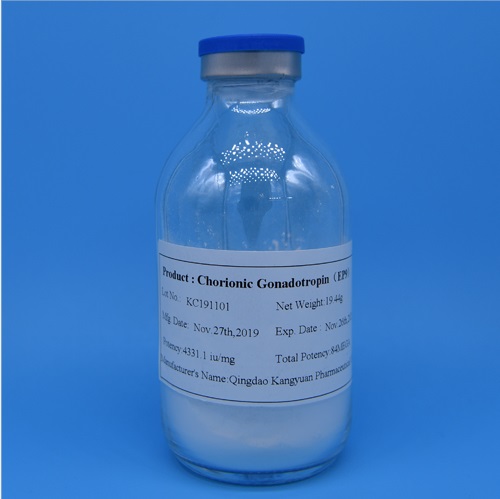Human Menopausal Gonadotropin (hMG) is a medication commonly used in
fertility treatments. hMG is a hormonal therapy that mimics the natural hormones
that regulate ovulation in the female body. The primary function of hMG is to
stimulate the ovaries to produce mature eggs suitable for fertilization.
Uses of Human Menopausal Gonadotropin
hMG is commonly prescribed in the following situations:

1. Ovulation Induction: hMG therapy is used to stimulate the ovaries to
produce mature eggs suitable for fertilization. This approach is typically used
in women who do not ovulate regularly or who have hormonal imbalances that
prevent ovulation.
2. In Vitro Fertilization (IVF): hMG is used as part of the IVF process to
increase the number of viable eggs available for fertilization.
3. Luteal Phase Support: hMG is sometimes prescribed after egg retrieval
and fertilization to support the development of the corpus luteum, which
produces progesterone and maintains the pregnancy.
Benefits of Human Menopausal Gonadotropin
The primary benefit of hMG therapy is the ability to increase the
likelihood of conception in women with ovulatory dysfunction. hMG therapy has
been shown to increase pregnancy rates, especially when used in combination with
other fertility treatments like intrauterine insemination and IVF.
Potential Risks and Side Effects
Although hMG therapy can be highly effective in treating infertility, it is
not without risks and potential side effects. Some of the most common side
effects associated with hMG therapy include:
1. Ovarian Hyperstimulation Syndrome (OHSS): This is a potentially
life-threatening condition that can occur when the ovaries become overstimulated
and produce too many eggs.
2. Multiple Pregnancy: hMG therapy can increase the risk of multiple
pregnancies, which are associated with increased risks for both the mother and
the babies.
3. Ectopic Pregnancy: hMG therapy can increase the risk of ectopic
pregnancy, which is a potentially life-threatening condition in which the
fertilized egg implants outside the uterus.
Conclusion
Human Menopausal Gonadotropin is a powerful medication commonly used in
fertility treatments to promote ovulation and increase the chances of
conception. While hMG therapy can be highly effective, it is associated with
potential risks and side effects that should be carefully considered before
proceeding with treatment. Patients should discuss the risks and benefits of hMG
therapy with their healthcare provider to determine the most appropriate course
of treatment for their individual needs and circumstances.